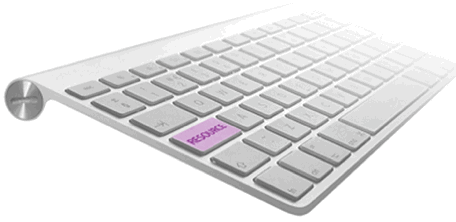
Just give us call or send us an email at: simon@hawkeen.com
10 Ways to get 10 times the value from calls
with your coach
1. Create the "Coaching Experience"
Think carefully about what you want to cover before the call begins. Most coaching calls are brief, 15-45 minutes and coaching isn't cheap, so make every minute count. Ask yourself the question; "If I could cover just one thing on the call today and have it be worth the entire month's coaching fee, what would it be?"
2. Start with a Full Plate
Working off the question above, make a list, not of one thing, but of 3-5 things that would be that valuable. Have more on your plate than you think you can possibly go over, you just might be surprised! Of course, you don't want to rush past something important. Some matters take time; you may only cover 1-2 items, just make sure they are important ones.
3. First Things First
One way to see to it that your call is well worth the time and money is to prioritise what you want to go over. Coaching calls are not the place to save the best for last. Put the most important item at the top of your list. That way, even if that's the only item that gets handled, the call will have been worthwhile.
4. Make Clear Requests
Once you have your list and the priority, write down what requests for coaching you have in one or two short, clear statements. For example, let's say your number one topic is, "How to make my business more profitable in the next 60 days?" Ask yourself, "How do I want my coach to support me in this?" Do you want to brainstorm some new ideas, develop the ideas you already have by talking them through, get some resource information from your coach, etc?
5. Prepare Your State of Mind
Take a few extra minutes before the call to mentally prepare yourself, rather than 'jamming' the call into an already full day. In the words of one coaching client, "When I book a call with my coach, I write down the time of the call in my calendar", then I book in an additional 15 to 30 minutes for prep time. This way I know that I will be ready to reap the benefits. I may take a short walk and think, I may look over my prep form, whatever. I make sure that I take the time to 'shift gears' from my usually busy day. It pays off in big dividends."
6. Cut the Chat
Keep the "chit-chat" to a minimum. You might enjoy chatting with your coach, but not if it takes up half the call. That's not really what you're paying for. Chat with friends who aren't charging you to talk to them. Get down to business with your coach.
7. Write up the Backstory
Handle as much of the background information as possible before the call. One of the greatest value-leveraging tools is the Prep Form. If you fill out the prep form prior to your call and fax or email it to your coach, they will have the necessary background information before you even say a word to each other. In this way you can start the call already running rather than warming up.
8. Be 100% Responsible
Take full responsibility for the coaching. Don't hire a coach to do your work for you. Don't expect him or her to 'do coaching' on you. A healthy approach to coaching is to consider yourself 100% responsible for how the relationship goes and what value you get out of each call. This is not to say that you keep working with a coach if the alliance does not work for you. Taking 100% responsibility might include completing with your coach and finding another, or taking a break from coaching.
9. Train Your Coach
Give regular feedback to your coach so he or she knows what works or what is most valuable to you so they can do more of it. Also, let our coach know what's not working or has less value so it can be eliminated. At first you might not know what's of most value but it won't take long before you realise that some calls are very powerful and other calls are so-so. Evaluate what was different about the two calls and train your coach.
10. Debrief
Take a moment after the call to make debrief and determine if you have any notes you would like to capture. Perhaps a word or two on discoveries, insights or themes that were explored during the call. If relevant, write down action items; though remember that the client does the work. And if you are using a regular prep form, the client will generally be doing this work.
07887 811567
by Ian McDermott, Jan Elfline & Pamela Richarde
